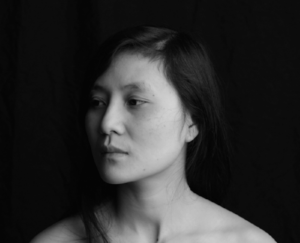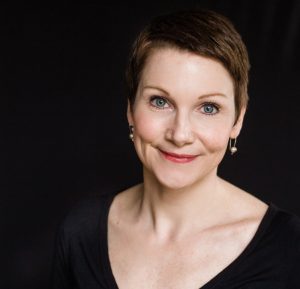
Vi Khi Nao adapts to a room’s energy.
As the Writers’ Center prose writer-in-residence for Week Three, Nao prefers to let a community dynamic take the lead when outlining the plans for her next six days at Chautauqua. When she, along with poet-in-residence Maggie Smith, gives a reading at 3:30 p.m. Sunday in the Hall of Philosophy, the audience will dictate the content.
“Usually I prepare a small sample, a makeshift anthology pulled from various segments of my published and unpublished work,” Nao said. “I tend to read from A Brief Alphabet of Torture, my novel Fish in Exile, Sheep Machine and sometimes from my poetry collection, The Old Philosopher. And, if I am excited, I will read new materials not yet presented to the world in digital or print form.”
Nao serves as guest judge for the 2019 Chautauqua Janus Prize, and will be visiting the Institution for the first time along with Smith. Smith will read primarily from her third book Good Bones, which features the viral title poem that Public Radio International proclaimed to be the “Official Poem of 2016.” Like Nao, Smith said she might treat the Sunday audience to a “sneak peek.”
“I’ve been reading from Good Bones since its release in fall 2017 — and had read many of the poems earlier — so it’s fun for me, and hopefully fun for the audience, to hear some new work,” she said.
Nao’s workshop, “How to Steal the Pain of Others and Make It Your Own,” follows the same organic approach that will inform her reading selections on Sunday.
“I work in the dark a little at the beginning of the workshop and it becomes more lucid and clearer as time passes,” she said.

Having recently undergone open-heart surgery, Nao incorporated her own painful, personal recovery process into her workshop methodology. Paraphrasing Susan Sontag’s classic essay “Regarding the Pain of Others,” the workshop description alerts workshop participants that they should “be ready to wear masks so other writers don’t know what kind of literary thieves we have become.” For Nao, the timing of the workshop is “serendipitous.”
“(A Brief Alphabet of Torture) wouldn’t have been possible if I didn’t regard the pain of others with sincere sensitivity and depth,” she said. “Perhaps I can get others to ‘Regard the Pain of Vi Khi Nao,’ another form of otherness.”
Ultimately, it’s Nao’s hope that she can compel writers to act like thieves, “to move out of their comfort zone, to explore the more esoteric aspects of their emotional and/or psychic selves.”
“Thieves try to acquire resources and power through the fastest means,” she said. “I would like writers to use literary devices that allow them to acquire literary resources or rhetorical tools to advance their writing to an exponential level. Stealing — without getting caught — requires a lot of creativity, and a great literary thief exercises prowess over labor.”
In “Crafting Free Verse: Line, Syntax, and Stanza,” Smith will consider the free-verse poem as indivisible parts of a whole that, through individual choices the poet makes, create meaning. Answering questions like, “Where to break each line?” and “Do we use regular stanzas, irregular stanzas, or no stanza breaks at all?” Smith will provide model poems as well as some generative prompts meant to energize.
Smith recognizes the difficulties that come with a workshop atmosphere. Having so many bodies in a room “with different expectations, strengths, weaknesses, personalities (and) preconceptions” makes it harder to “meet each writer where he or she is,” she said. And yet, a workshop can also give birth to triumph.




